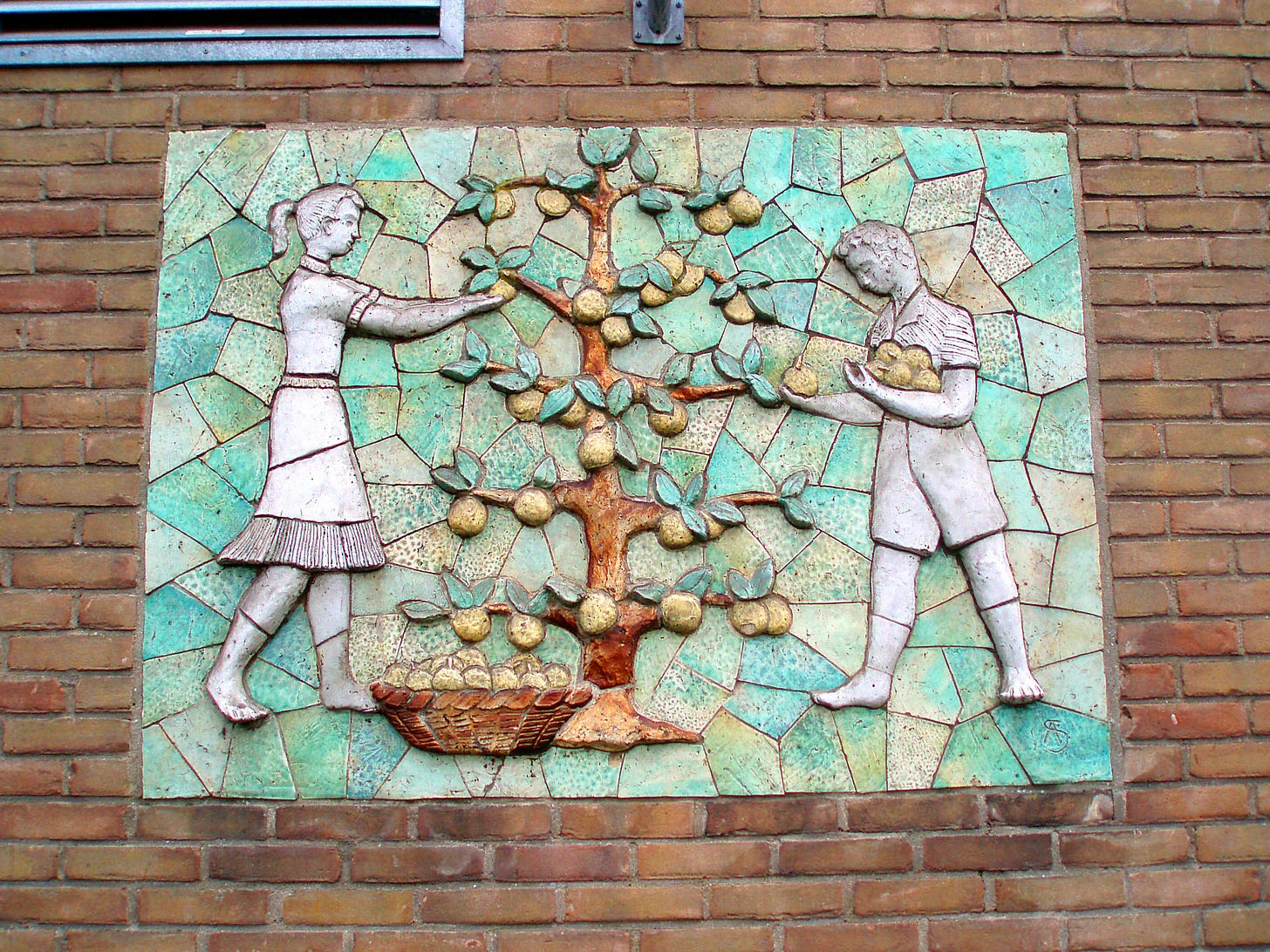Today I mentioned I’m going to start growing even more apple trees, and getting my neighbours to take over a small patch of abandoned grass near our block. This got me thinking about what happens when people work together, and what kinds of reality we create. There’s a kind of knowledge that is known as ‘silent’ or ‘implicit’ knowledge. It grows up while we are doing other things, and we can’t spell it out easily, or even know we’re using it.


I think that while stories are great ways we use to describe the world – and how we want the world to be – they are also limited precisely because they involve spelling things out in explicit words. We need to say, “beware of the vampire’s castle, this is a story about the dangers of becoming a bloodsucker.” What we cannot say is how to live in a different, harmonious way with each other; we need to do it instead. You can’t get a recipe that tells you how to live a good life, and the books that prescribe how to live your life in all important ways are usually either nonsense or totalitarian.
What I mean by this is that the words I’m writing now, talking about the dangers of spelling out advice with words are themselves too sterile and explicit to really be a way of creating a fruitful engagement. Living with people in a respectful and democratic way involves learning and practising endless forms of silent or tacit knowledge, which are far too subtle to be properly described. Have you read In Search of Lost Time by Marcel Proust? He elaborates and over-elaborates exactly what everyone is feeling and doing, to the tiniest level, so you can feel how the hairs on someone’s neck crinkle when they feel they have been slightly slighted. Yet this is still just words on a page, based on one person’s ideas of how the situation might be.
Words and stories are necessarily limited. They say, this is, and this is not. They invite argument and disagreement and definition against themselves. If anything, this is why we see a ‘toxic’ climate on social media. We are like a convention of priests 500 years ago, throwing our paper statements at each other. We are not living and learning with each other in the same kind of way.
So this brings me back to gardening. I’m hoping that by using the spade, and nurturing the tree, I can find common ground with my neighbours and live with them in a fruitful way, whether or not we share similar stories. Many forms of organising start with the story. Join this if you agree with us. Sign up to this manifesto, this statement of aims. We are already in a prison of more explicit and more sterile knowledge. What about starting the other way around? Let’s get the fruit, let’s make the bread, and see what stories we can then tell which fit with this way of living we have.
Maybe this is also why people in times of war and crisis describe feelings of joy and community. It’s not that humans like danger, but that we like being in situations where we are brought together by having the same clear and concrete goals.
Just some thoughts.
Hope you have a great day!
p.s. the concept of tacit knowledge comes from Michael Polanyi's Personal Knowledge (1958).




